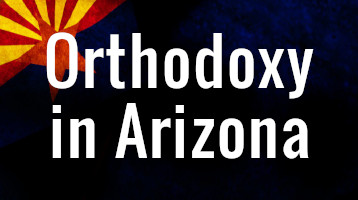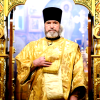
What has Pentecost to do with freedom? What is freedom exactly? What is it not?
by Fr. Patrick Henry Reardon
When we declare that God created the Cosmos in freedom, we mean that nothing outside of God had to be. Modern philosophers seriously ask—as other philosophers, for centuries, implied—why is there something instead of nothing? This sane and sensible question rests on the plain insight that nothing we see in the Universe really has to be. And if nothing in the Universe has to be, then the Universe itself does not have to be. So, then, why does it exist, since there appears to be no necessity that it should exist?
The biblical doctrine of Creation, to which the Church is committed by Tradition and Creed, finds the root of all created things in the intelligent freedom of the Creator. Things are, because God caused them to be. He, likewise, did this freely. Moreover, we understand this freedom of God’s creating act to have two qualities:
First, God acts without compulsion of any kind.
Second, God’s free creating act is inseparable from His knowledge. That is to say, what God does is not haphazard; it embodies His thought. He creates through His Word, His Logos. God’s freedom, then, serves a noetic structure and purpose; what God determines to do is inseparable from His Logos. What God does, He does with understanding, and with the intention that it should be understood.
This point is important because it embodies an essential feature of freedom. Freedom is not mere indeterminacy; freedom is intrinsically rational; it is directed to an end.
Freedom is not simply the ability to choose but the capacity to choose wisely; it is the competence to choose the light which is—according to Genesis 1:4—the good: wayyar’ ’Elo’im et-ha’or ki-tov. God’s creating freedom is not chaotic; it pertains to the true and the good. In the beginning of Genesis, God does not create darkness; He creates “light” (‘or), and then He then identifies the light with the “good” (tov). Creation, then, comes from the deliberate and un-coerced projection of God’s light; He creates a “light” outside Himself.
At some point in our process of reasoning on this point, it must occur to the thinker to inquire, ‘How have I arrived at this concept called freedom? The thinker has arrived at this concept, of course, because freedom represents something the thinker has actually experienced. Freedom is an experience before it is a concept.
Indeed, if the thinker searches for the reason for this experience, he finds himself stymied; he knows, first, that his freedom is a given. He cannot explain it without running into an intractable psychological—and, perhaps, logical—puzzle. Whatever freedom is, it is simply because it is. Freedom thus bears the character of a tautology: We human beings choose because we choose. If the act is compelled, it is not choice. We have motives, of course, but free choice is, as such, self-caused.
It further occurs to our thinker to reflect that if freedom is a given, it must also be a gift. And if freedom is a gift, what does this say about the existence of a giver? Only Someone with freedom can give freedom.
Everything else that takes place in the Universe appears to take place as an inevitable effect of some cause outside itself. Everything else in the Universe is driven; whatever every other creature does is the result of the determining influences brought to bear upon it. Planets move because something, a very long time ago, set them moving. Plants grow because of an inherent dynamism over which they have no control.
Man, alone—within the Universe is self-determining. It is impossible, consequently, in the case of freedom, for a logical process to trace an effect to a cause. Like a tautological proposition, freedom’s predicate is contained in its subject. It is the most mysterious of everything human.
Consequently, when the human being declares that God made the Universe in freedom, he is basing this declaration on an analogy. He is saying that in God there is something very much like man’s own experience of freedom. And, since God is the creating source of man’s freedom, freedom must start with God, not with man. Any “analogy of freedom” in man’s thought must confess that the radical origin of freedom is the infinite and wise freedom of God. Man, in his own freedom, simply bears a likeness to God.



